
黎明天光,百納海川。喜歡故事創作、影視作品分析,亦是社會觀察者。
"Black Mirror" - "15 Million Points" Who's Real Experience?
A rooster crowing is the start of the day, you wake up in a dark room, get out of bed and walk into another black box—the bathroom.
You must use points to squeeze toothpaste, and you must use points to listen to music. You can increase the points until you walk out of the room, get on a bicycle, and pedal a bicycle; you can go to the vending machine to buy rare fruits, drinks with unknown contents, After a short break, return to the bike seat and wait for the long wait for the end of the work.
Day after day, year after year.
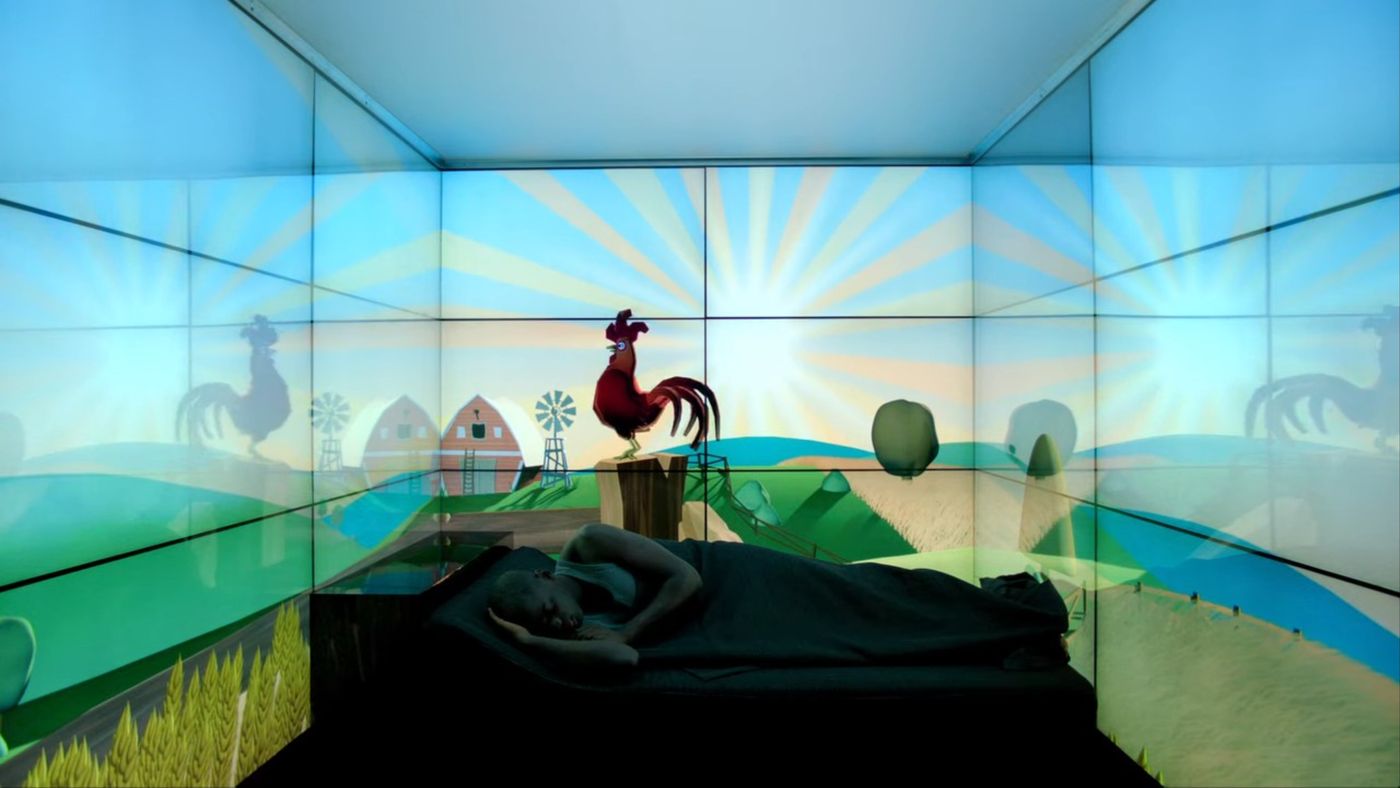
real experience
Madsen pedals his bike with no purpose.
Madsen, who had never shown a social interest since meeting Abby, suddenly found a drive— as if meeting the only real person . He is willing to give 15 million points to Abby, so that she can fulfill her dream of being a singer and escape the ghost life of cycling forever. Abby was originally reluctant to accept the points for nothing, thinking that Madsen should be used for himself.
"Those are things, useless junk...you have something real. Is there anything more worth spending than this?"
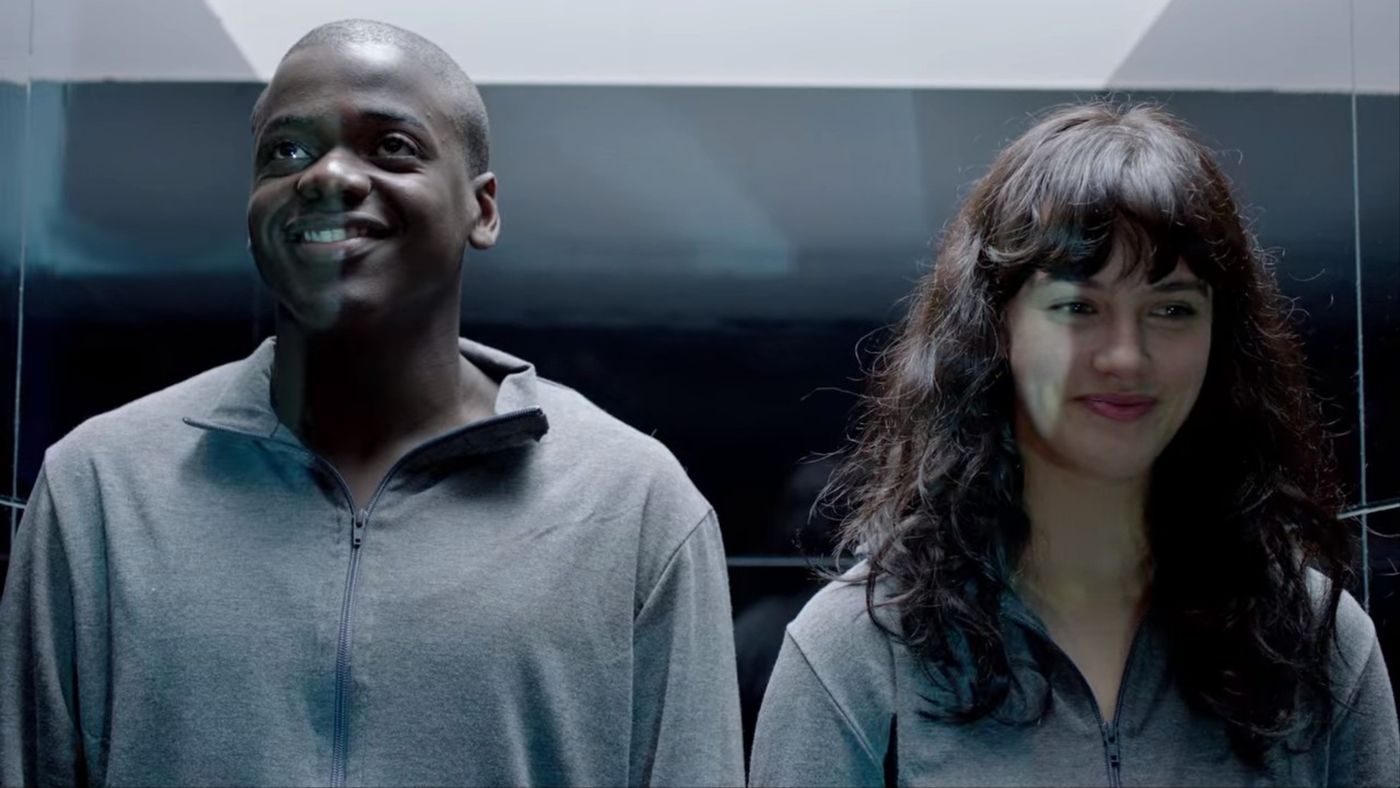
Abby finally agreed to sing on stage, only to be stopped by the judges, who thought she was better suited for another role: as a porn actress. Madsen excitedly stepped forward, but was dragged away from the backstage by the staff; Abby timidly agreed in the face of the judge's pressure and the excitement of the online crowd.
It was like Madsen, who had entered hell from heaven, and returned to the small room. The screen showed Abby's first show. He closed his eyes, and the red screen surrounded him—
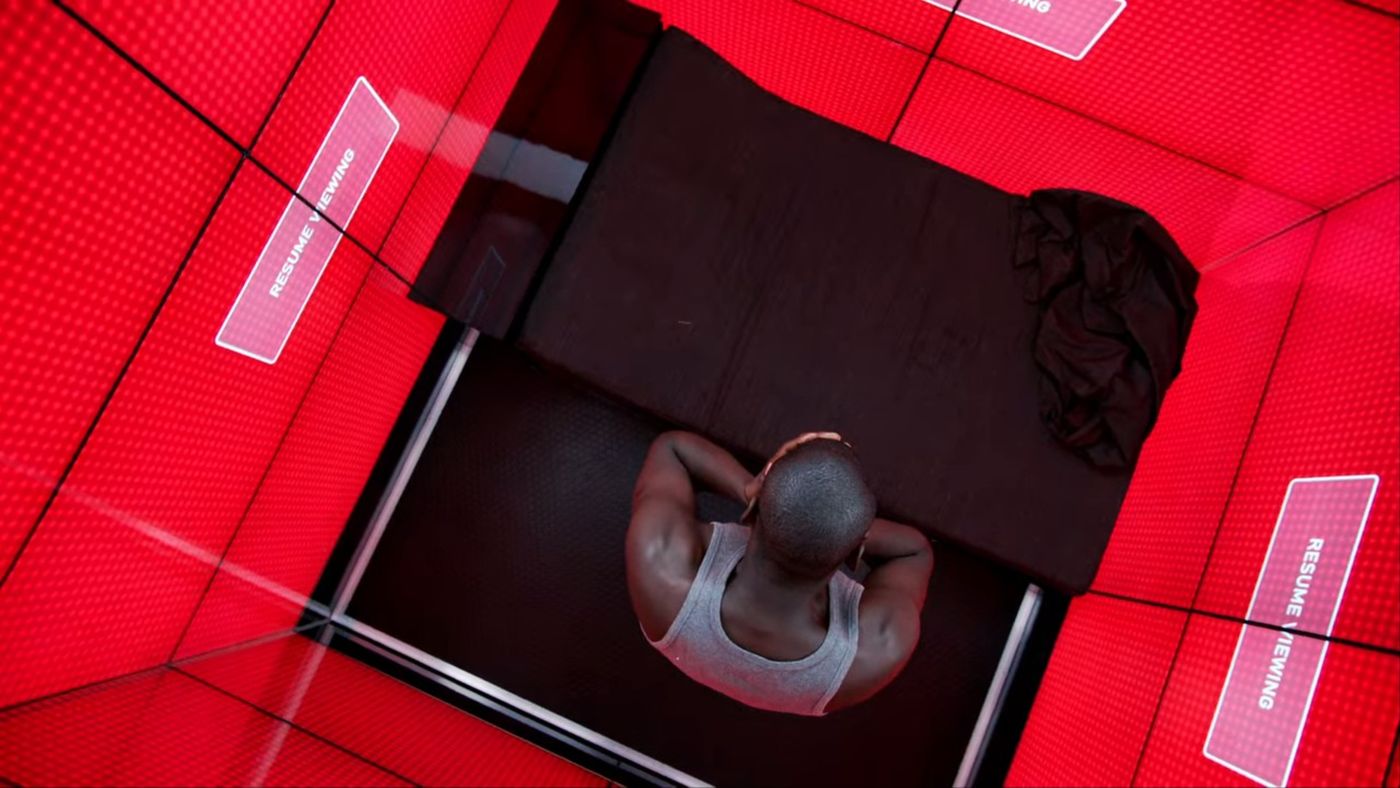
Forcing the screen that Madsen had to watch, the trailer continued to play, and he slammed into the screen with all his strength, and finally shattered to life. After that, he stepped on the pedal hard, and the points started to soar from approaching 0. Finally, he earned 15 million points and bought a stage ticket.
Believing that the only truth has been taken away, Madsen clenched the shards of glass against his neck, trembling with anger, shouting out the oppressed life, completely unable to feel a trace of truth. On a bicycle, where are you going? Accumulated points, for what? Buy yourself a hat that doesn't exist? Those were just "things" and they turned "the only real" into things! FUCK YOU!
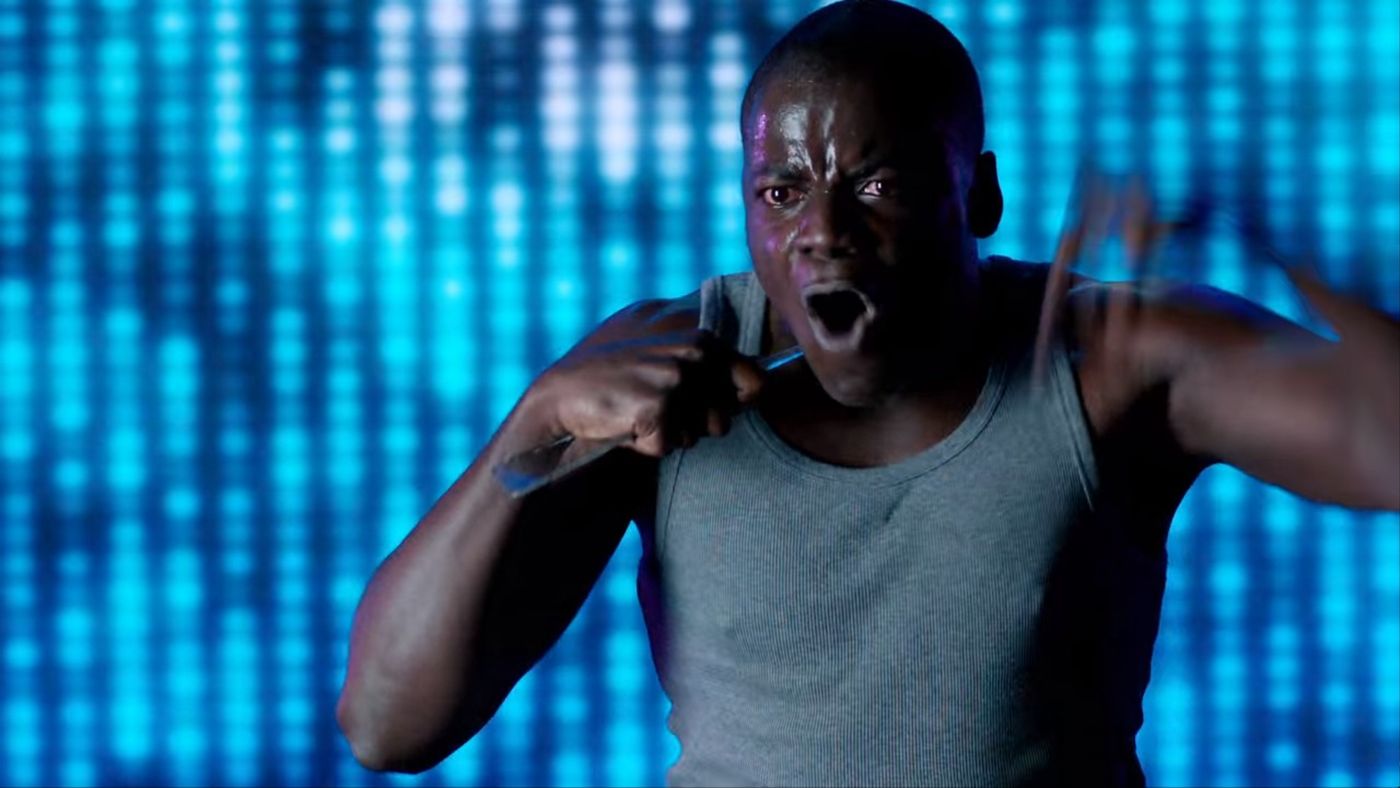
After a moment of silence, the judge said that this was the most sincere performance he had ever seen. Although he didn't fully understand what he meant, the "truth" for Madsen was felt by all the people on the scene. The jury provided a job opportunity for Madsen to continue to speak up, and encouraged by the crowd, Madsen finally accepted the status of a "performer" and started a new life.
What is truth?
When people fall into the cycle of the labor environment, they will start to become numb. The saying that "one bug to get off work, one train to work", as long as people return to the private realm, people can adjust themselves, go to get off work to get off work, and work to live - however, Mai De Even when Sen returned to the room, he was still pushed and oppressed by external forces.
Forced to focus on the screen, inundated with information garbage, and having to "pay" to get clean eyes and ears, how much like today's commercial activities. Open the video and social platforms, all kinds of advertisements are like monsters that are off the gate, rushing to your eyes, some can be closed directly by pressing the fork, and some must be paid to get rid of, regardless of commercial income and balance, as far as human life is concerned , Who exactly decides our needs? Or "build" people's needs?
"Hot Shot" (translated as singing stage) is the outlet for class mobility and the starting point for creating demand.
The only live broadcast platform, the audience's enthusiastic response or boos, the participants can feel it on the stage; the judge's standard becomes the standard of the audience, and the judge's words and public opinion form a great force, comprehensively oppressing the participants .
Whether Abby or Madsen are in such a situation, they choose to be a "performer" rather than go back to riding a bicycle.
The first time I watched this film, I was shocked by the ending, but thinking back, is this just a last resort? Madsen has a new life and can look at the nature outside the floor-to-ceiling windows. Even if it may be a big screen, he can drink fresh orange juice, get a flower bottle, and even hand-made penguins from Abby.
Talking freely for 30 minutes, two days a week, can lead to this kind of life, which is better than the boring life of riding a bicycle. Forget those ideologies that exploit people! See, those cyclists, aren't they all willing to ride their bikes and enjoy the daily entertainment? Madsen insisted on his own truth, and this belief took him on stage and became an entertainment show in the future - the practicality lies in selling more products, such as diversified props (assassination of own glass) or more accessories, and adjust the physical and mental conditions of workers.
How to find the services that one can provide, and maximize such services within the system, to become a win-win for the system and the individual, seems to be a portrayal of social class.
What if Madsen didn't say yes and went back to the bike? For two reasons, it is impossible for him to go back. First, Madsen has been pursuing "real experience" since the beginning. It is precisely because of the labor conditions and the paralysis of the private sphere that he has no passion to live. With new options now available, why not seize the opportunity? Second, what he complains about is that the system and the self in it can get rid of the old life and move forward, why not?
There could also be a third reason: when he gets there, he might see Abby again.
But at the end, it wasn't the two of them meeting together, but the picture of Madsen looking at the forest alone. He finally achieved the real experience he wanted. This time, it was not the screen that forced him to watch it, but the picture he actively paid attention to—with a spacious A room, a job, fresh food, and a view of nature.
Generous working conditions, ample private space, good food, and freedom to watch. The rising class makes all experiences better - however, when the film ends, people continue to live.
If you are alive, you will inevitably be numb to the working conditions. One day, Madsen in real life will collide with the system again. The struggle of laborers may loosen the system or be included in the system again, just like the original Madsen, It's just that everything will be different from the beginning.
Judge Hope once said to Madsen, "...I know where you're from, and I love your stuff."
"That's not a thing. That's the truth—"
"That's the truth, am I right? Your truth, undeniably, is the truth. You're right, the truth is sadly lacking. I want to hear from you again."
What is authenticity? The truth that belongs to Madsen, which truly presents the ugliness of each person's life, what service does it provide? Share the perspective of a sociologist and discuss it with you.
Primary and secondary adaptations
American sociologist Irving Goffman once described in "Mental Hospitals: On the Social Situation of Mental Patients and Other Detainees" (hereinafter referred to as "Mental Hospitals"), the types of fully controlled institutions and the world of the detainees, Relatively speaking, the place where the characters stay in this film is similar to a "full control agency", and the characters are similar to the "contained person".
During the conversation between Madsen and Abby, Abby once mentioned that he wanted to go to the place where his sister was, but it was obviously full, so he came here, and Madsen also said that because of the death of his brother, I only have 15 million points, and these clues are showing that they entered this organization from the outside world to work, and as the judges said, it is a work that "provides motivation"; even after get off work, they cannot return to their own homes. , living in the dormitory provided by the institution, it is almost a full-control institution, except that there are no supervisors, but in a sense, the system has already played the role of a supervisor, deciding when to provide advertisements suitable for users. is to control the user's life.
The book has quite detailed content on how the "inmates" demonstrate their moral careers, but I only want to mention two terms here—primary adjustment and secondary adjustment.
- Primary Adjustment: Contributing to the required activity cooperatively to the organization is a collaborator: he becomes a "normal," "planned," or built-in member. (Excerpt from "Mental Hospital", p. 195)
That is to say, being a serious student in school is a primary adjustment; an incumbent who works diligently in the workplace is a primary adjustment; going home and doing housework well and being a good family member are a primary adjustment. Organizations require the activities of individuals, and individuals operate cooperatively, whether in accordance with the ego or not, within the scope of primary adjustment.
- Secondary adjustment: The difficulty of explaining this concept is mentioned in the book, which basically has a range, that is, activities that are "recognized but not so formal".
As far as this film is concerned, for example: when Abby stepped on a bicycle, he put the origami penguin on the handle, and was swept away by the cleaning staff, saying it was garbage; next time, Abby took out the origami penguin and stuffed it back into his own. The belt, this time no cleaning staff took it, because she did not put the penguin in public, but appeared and hidden in an "informal" way.
From the results, the personal creation of origami penguins can be regarded as a "recognized but not so formal" activity. The reason why the book mentions the difficulty of explaining secondary adaptation is precisely because primary and secondary adaptation are socially defined issues that can only be distinguished by the way the organization operates.
How can I tell that Abby's origami penguin is a secondary adaptation?
Madsen did not project his personal belongings, the toothbrush and toothpaste he used when he woke up did not make him feel self-existent, and the food bought from the vending machine did not arouse his liking. However, Abby was quite obvious. From the process of origami to playing with the penguins, it highlights what sets her apart from everyone else: she creates her own thing and truly loves it. Frustrated when the cleaning crew cleaned it up, Abby decided to tuck the penguins into her waist pants so they wouldn't disappear.
Cooperating with pedaling is a primary adaptation, while origami penguins are a secondary adaptation.
So, why did Madsen commit suicide-like behaviors and end up enjoying the goodness of a new life?
Remember when Madsen entered the stage and did a dance first? Unexpectedly, he took out the glass and pressed it against his neck, asking everyone to pay attention and really listen to his heart. The judges accepted his request, Madsen was at a loss for words, and Hope said you should prepare a paragraph to say, right?
Madsen broke the entertainment function of the stage for the masses - this entertainment is also a primary adjustment. Everyone was stunned, their heads were blank, just waiting for Madsen to speak, and the truth he poured out left people speechless.
Think about it, everyone, the stage provided by "Hot Shot" belongs to the agency's official primary adjustment. Apart from the boring life of riding a bicycle, the only live entertainment platform, but Madsen broke it out with a single word, tore off the fake mask, the judge heard In the end, they all bowed their heads and dared not look directly; as the category of primary adjustment, there was a crisis, and the judge Hope regarded it as "hope" - subtly transforming the cry of secondary adjustment into a program of primary adjustment.
If it were not in front of the public, the judges would not face such a crisis, and it would be impossible to transform it into a new program, all from Madsen's reaction. Was his original intention to commit suicide? no. Did he want to kill the reviewers in the first place? Neither. Madsen complained that he had suffered from repression and dissatisfaction, and finally a sense of hope appeared, but he was crushed into a bone by this system.
Madsen's accusation of desperation became the hope of the masses, so the judges decided that he deserved a good new life--a rising mobile class. Madsen had better benefits and a new job, adding to the stability of the system.
This passage from page 204 of The Asylum:
...an important feature of primary adaptations is that they contribute to the stability of the institution: an organisational participant is adapted in such a way that he may remain involved as long as the institution wants him to, and if he leaves, It will also make it easier for organizations to find replacements.
This aspect of primary adaptation allows us to distinguish two secondary adaptations: the first is destructive adaptation, in which the participant's actual intention is to abandon the organization or completely change its structure. Both disrupt the smooth functioning of the organization. The second is inclusive adaptation, which shares the same characteristics with primary adaptation in that it integrates into the existing institutional structure, does not introduce pressure to cause drastic change, and in fact has an obvious function, which is to make some attempts that would otherwise cause damage. turn. ...
Did you notice?
Madsen's original act was the first of secondary adaptations: destructive adaptations. He intends to give up or change the structure of the system, although he has no actual plan, but he does everything he can to shout out and let everyone feel the truth, the point is - and then? No one dared to continue until Hope spoke up and included the structure that was about to rupture into the second: inclusive adjustment.
Madsen's social role was transformed.
People who were eager to break through the system were changed by the system. Therefore, the audience who saw the ending felt embarrassed. After all, Madsen accepted the arrangement of the system, but in real life, how many people would refuse and continue to go back to ride a bicycle? It would be a pity if the understanding of the film only stops at this level; from the point of view of sociologist Goffman, even Madsen, who finally succumbed to the system and chose a new life, still has a certain understanding.
“Our sense of being a person comes from being drawn into a larger social unit; our sense of self comes from the tiny ways in which we resist being pulled. Our state of identity is underpinned by the solid structures of the world, but we personal identity is often found in the cracks." - Irving Goffman.
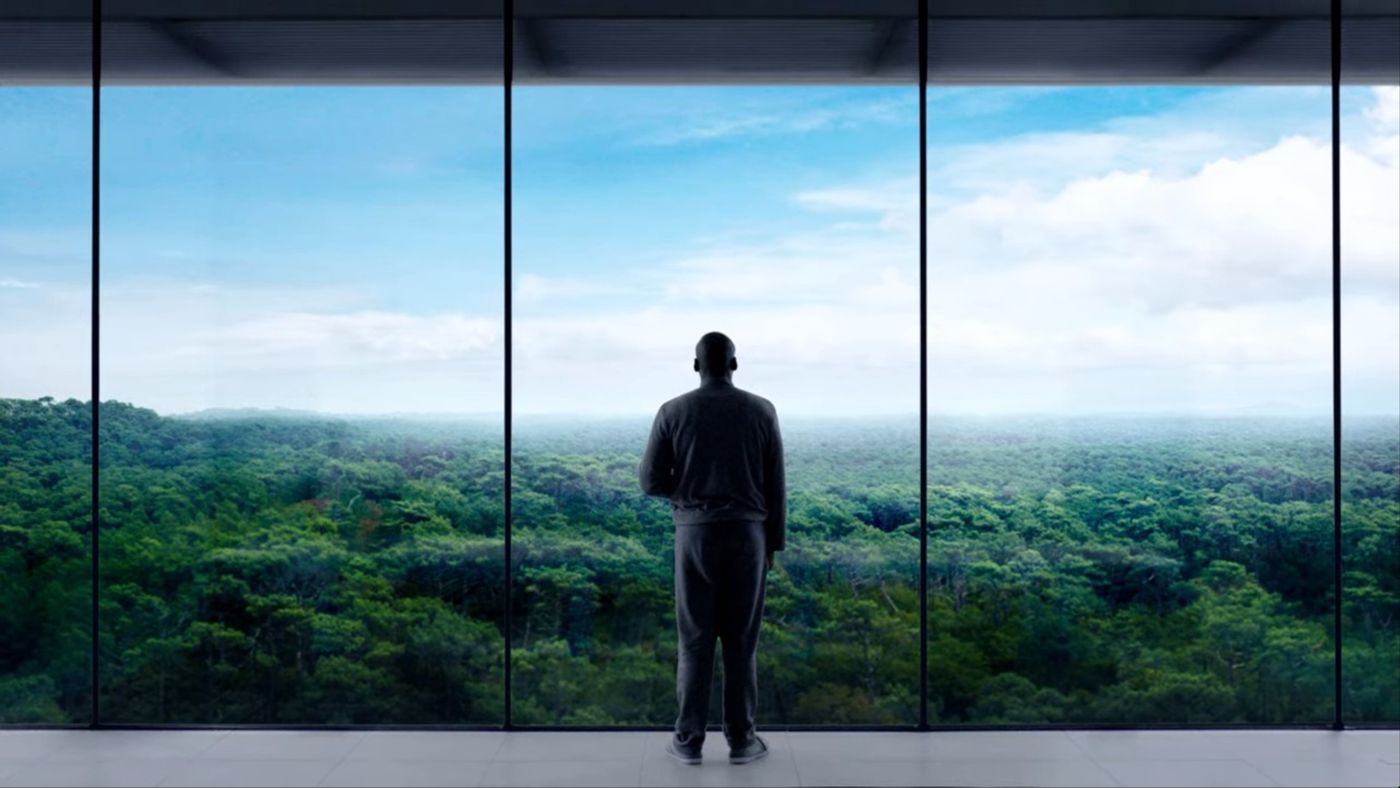
Image source: Netflix.
Reference: "Psychiatric Hospitals: On the Social Situation of Mental Patients and Other Inmates". By Erving Goffman. Translated by Qunxue Translation Studio. Group Science Publishing.
Like my work?
Don't forget to support or like, so I know you are with me..
Comment…